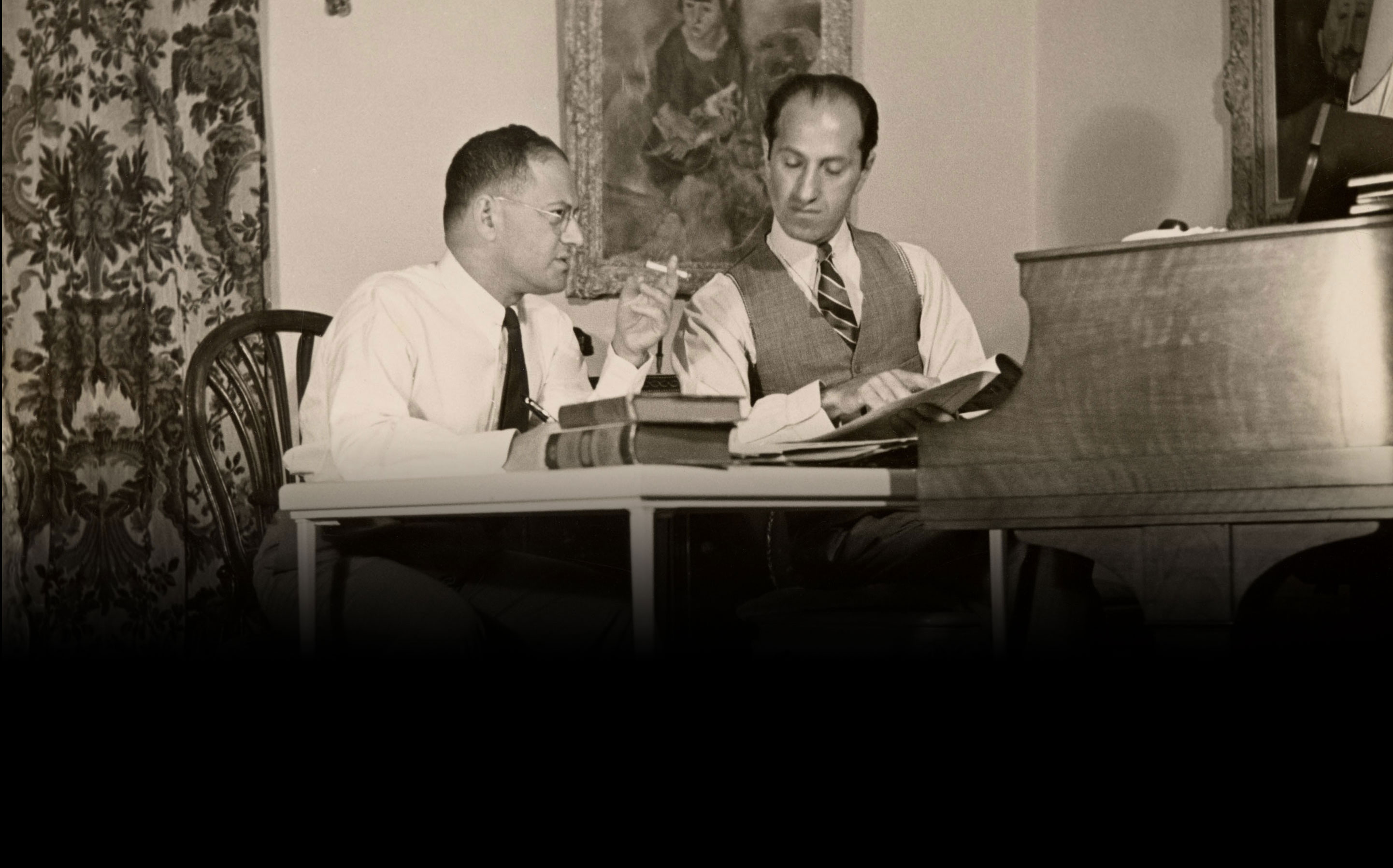The Follies of Show Business
The celebrated Florenz Ziegfeld, Jr. put on countless Broadway shows during his career, one of which included a score and lyrics by George and Ira Gershwin. Yet in spite of the fact that all three collaborators had admirable reputations, this particular working relationship was a rather unstable one.
By Cassidy Goldblatt
Those familiar with Florenz Ziegfeld, Jr.’s 1929 musical comedy Show Girl know that George Gershwin’s score included his newly completed An American in Paris, arranged to open the second act. What many may not be aware of, however, is the fact that An American in Paris was a last-minute addition intended to allay Ziegfeld’s considerable displeasure with the original score.
Florenz’s disapproval reached George’s ears rather late in the production process, prompting the composer to offer a refund of his advance and withdraw the score—but the director declined his proposition due to the show’s fast-approaching opening date. In recompense, Gershwin offered the use of his new rhapsodic ballet to increase Show Girl’s musical substance. Although An American in Paris was “said to have strengthened the musical end of the show considerably,” the score still did not entirely please Ziegfeld, who attempted for some time to withhold George’s royalties and even Ira’s and Gus Kahn’s (the collaborative lyric-writers) paychecks.
Ziegfeld’s disapproval seems to have been largely isolated, with few critics actually pronouncing the score sub-par. Although one irascible reviewer took issue with both the music and the production itself, calling Show Girl “the weakest attraction that impresario [Ziegfeld] has brought to Broadway in recent years,” others found the show entertaining and declared the songs to have “startling effect,” describing An American in Paris itself as “striking and interesting,” “overflowing with melody,” “the high spot of the second act,” and, according to The New York Times, a “turbulent, exotic rhapsody in red.” Despite the director’s opinion on the Gershwin brothers’ performance, the audience apparently found it perfectly delightful; perhaps George’s inclusion of An American in Paris was just the stroke of genius that saved both brothers’ reputations in show business that year.
Further Reading:
Allen, Kelcey. “Amusements: ‘Show Girl’ (At Ziegfeld Theatre).” Women’s Wear Daily, 3 July 1929, Section 1, pg. 12. Fairchild Fashion Media, 2014. Web.
Atkinson, Brooks J. “Summer: In Theatrical Memoriam.” New York Times, 25 Aug. 1929. ProQuest Historical Newspapers: The New York Times with Index, pg. X1. Web.
“Inside Stuff—Legit.” Legitimate, 3 July 1929, pg. 95. ProQuest LLC, 2013. Web.
McIntyre, O.O. “Theatre.” Life, 30 Aug. 1929, pg. 22. American Periodicals. Web.
“The New Plays on Broadway: Ziegfeld: Show Girl.” The Billboard, 13 July 1929, pg. 40. ProQuest LLC, 2012. Web.
“New York, July 6, 1929. ‘Show Girl.’” The Stage, 25 July 1929, pg. 21. ProQuest LLC, 2012. Web.
“Ziegfeld Pays Off Gershwin.” The Billboard, 2 November 1929, pg. 6. ProQuest LLC, 2012. Web.



Showbiz is so different nowadays.
Cool share, thank you